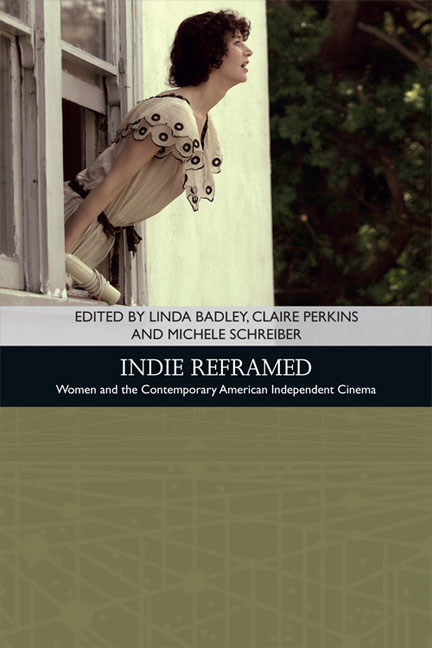18 - Beyond the Screen: On Contemporary Feminist Media Re-articulations
Published online by Cambridge University Press: 10 November 2020
Summary
FEMINIST MEDIA ECOLOGIES
Fifteen screen megaplex theatres showcase comic book-inspired tentpoles with male superheroes and special effects, playing to teenage boys chomping on Twizzlers. Four decades of feminist film agitation seems to have happened on a remote planet in another universe. Arthouses present a more character-and-dialogue driven cinema of cinematographic complexity and narrative ambiguity. Whether you argue that Birdman (Alejandro Gonzales Inarritu, 2014) unfurls breakthrough cinematography or revivifies male patriarchal fantasies perhaps is insignificant: its months-long exhibition runs bankrolled independent art cinemas. The powerful, pathos-inducing, historical biopic about Martin Luther King, Selma (2014), directed by African-American film director Ava DuVernay, generated enormous press and attention. But it did not enjoy Birdman's extended runs. Feminist independent media is frequently categorised as ‘indie’ work outside the studio system. Most festival programmers and museum curators mobilise a heterogeneity that decentres white male, Euro- and Americancentric privilege, and gender, race, nation, and sexualities as key programming strategies. Feminist debates swirl around the transnational corporate-produced, male action genre films of Katherine Bigelow (The Hurt Locker, 2008; Zero Dark Thirty, 2012), the first woman to win an Academy Award for directing. Obvious Child (Gillian Robespierre, 2014), a narrative film about a young woman's decision to have an abortion which was independently-produced, engages feminist issues more explicitly (Weaver 2010).
A University of Southern California study done in 2013 and entitled ‘Exploring the Barriers and Opportunities for Independent Women Film Directors’ reviewed 11,197 directors, writers, cinematographers, and editors of films screened at the Sundance Film Festival from 2002–12. Women directed only 29% of these films. Of the top 100 box office films, women directed only 4.4% (Beck 2013). Even Variety pondered whether Hollywood was sexist (Setoodeh 2014). A July 2014 article in the Guardian contended gender inequality and bias in blockbusters: production crews were 75% male (Peterson 2014). In December 2014, an Indiewire article decried the ‘abysmal number of women in the film industry’ while heralding a few key breakout women-directed narrative films of that year: A Girl Walks Home Alone at Night (Ana Lily Amirpour), Selma (DuVernay), Beyond the Lights (Gina Prince-Bythewood) (Silversteen and King 2014).
- Type
- Chapter
- Information
- Indie ReframedWomen's Filmmaking and Contemporary American Independent Cinema, pp. 304 - 318Publisher: Edinburgh University PressPrint publication year: 2017



